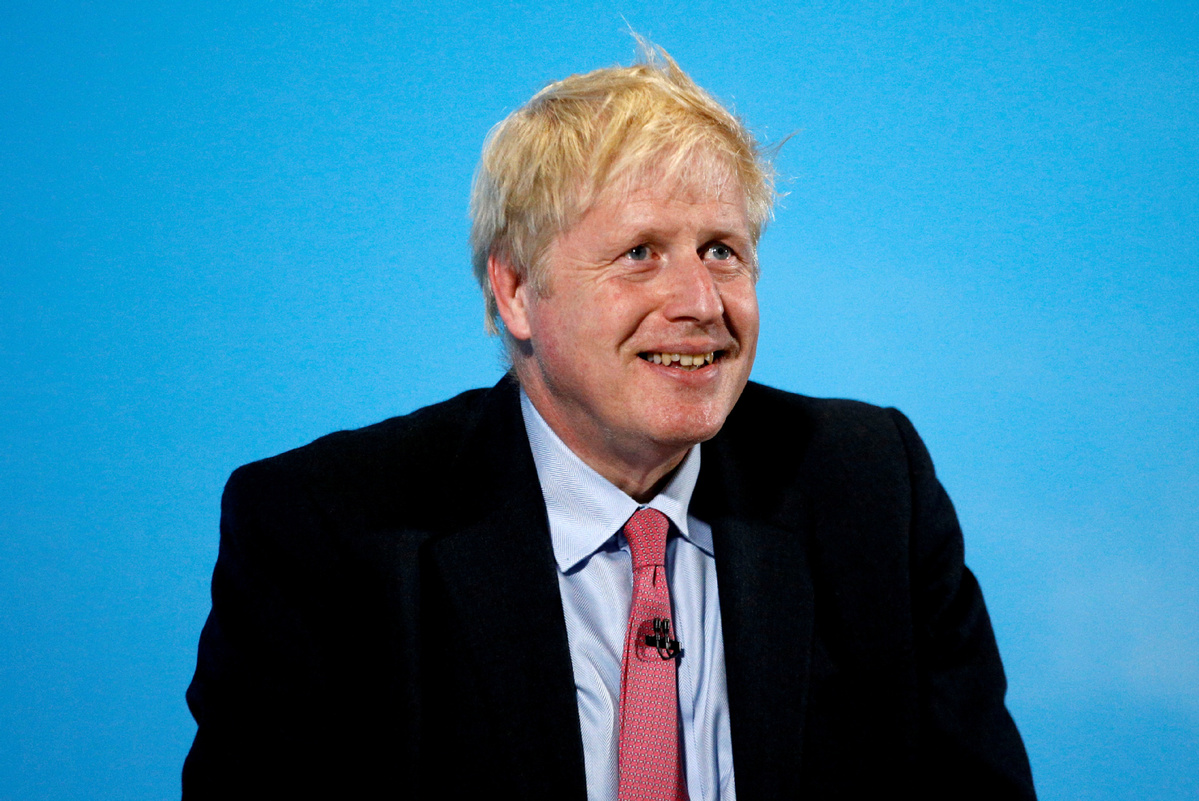Johnson threw envoy 'under a bus'
By Jonathan Powell in London | China Daily | Updated: 2019-07-12 09:33

UK PM hopeful faces backlash for failure to back ambassador to US
Senior politicians in the United Kingdom have criticized leadership contender Boris Johnson over his role in Kim Darroch's resignation as British ambassador to the United States, after he repeatedly declined to rule out replacing the diplomat in a live TV debate.
Senior Conservative members of Parliament described his conduct as "unedifying" and "contemptible". Tom Tugendhat, the chair of the Foreign Affairs Select Committee, asked: "If you do not support those you put into very difficult positions, what do you think is going to happen?"
British Foreign Office Minister Alan Duncan described his behavior as despicable, accusing him of having "thrown our ambassador under a bus".
With what was interpreted as a direct rebuke of Johnson, British Prime Minister Theresa May told MPs: "I hope the house will reflect on the importance of defending our values and principles, particularly when they are under pressure."
The resignation came as Downing Street confirmed there had been "initial discussions" between government and police regarding the Whitehall investigation into the leak of dispatches in which Darroch described an "inept" president and his chaotic administration.
May is understood to be considering appointing a new ambassador in her last week as prime minister, amid concerns Johnson could seek to make a controversial political appointment in the hope of pleasing US President Donald Trump.
There has been a renewed focus on the identity of the leaker, with Foreign Office Permanent Undersecretary Simon McDonald telling MPs: "We will pursue the culprit with all the means at our disposal. The leaker is guilty of the worst breach of trust in our service in my career."
McDonald told the Foreign Affairs Select Committee that he had been forced to call an all-staff meeting to reassure concerned diplomats and feared that further illegal leaks could be imminent.
"People are shaken by what has happened and there is a reason why I have asked to see all my colleagues," McDonald said. "The basis on which we have worked all our careers suddenly feels challenged." He described the episode as a personal tragedy for Darroch.
Asked what the impact would be for transatlantic relations, he said: "It is too soon to have a complete or authoritative judgment. Nothing like this has ever happened. There must be consequences."
Fresh details emerged about how the Foreign Office tried to contain the diplomatic row surrounding the leaked emails of the UK's ambassador in Washington.
The BBC reported that US officials initially responded calmly to Darroch's comments. But after Trump's intervention it became clear he was no longer welcome.
The Foreign Office learned on Friday that the Mail on Sunday newspaper intended to publish the leaked cables, prompting the British embassy in Washington to contact the White House and US State Department on Saturday to warn of what was to come.
The Trump administration was at first understanding, leading the Foreign Office to believe it could contain the diplomatic fallout. Everything changed when the president stepped before the cameras on Sunday afternoon, was asked about the criticisms, and said that Darroch had not "served the UK well".
The first presidential tweet tirade followed on Monday, after which the US Treasury Secretary Steven Mnuchin called Darroch, to disinvite him from a dinner attended by the president later that evening.
























